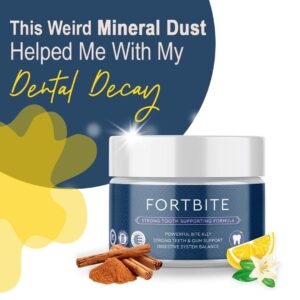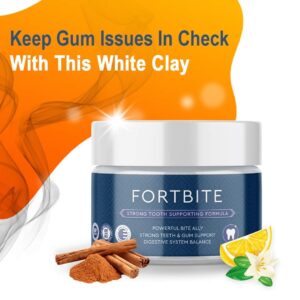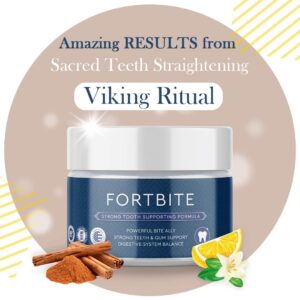Why does my breath always smell bad even after brushing?
Persistent bad breath, also known as halitosis, can be frustrating and embarrassing, especially when it persists even after brushing your teeth. Several factors can contribute to persistent bad breath, including:
- Poor oral hygiene: Inadequate brushing and flossing can leave food particles and bacteria in your mouth, leading to bad breath. Make sure you’re brushing your teeth at least twice a day and flossing daily to remove plaque and food debris.
- Bacterial overgrowth: Bacteria in the mouth can produce sulfur compounds that contribute to bad breath. Certain areas of the mouth, such as the back of the tongue, can harbor bacteria and food particles, leading to persistent odor. Brushing your tongue or using a tongue scraper can help remove bacteria and reduce bad breath.
- Dry mouth: Saliva helps rinse away food particles and bacteria in the mouth, so a dry mouth can contribute to bad breath. Factors such as dehydration, certain medications, mouth breathing, or underlying medical conditions can cause dry mouth. Drinking plenty of water and staying hydrated can help alleviate dry mouth and reduce bad breath.
- Diet: Certain foods and beverages, such as garlic, onions, coffee, and alcohol, can contribute to bad breath. These foods contain volatile compounds that can linger in the mouth and be released when you exhale. Limiting or avoiding these foods may help reduce bad breath.
- Smoking and tobacco use: Smoking and using tobacco products can contribute to bad breath by drying out the mouth, increasing the buildup of plaque and bacteria, and leaving a lingering odor on the breath. Quitting smoking or tobacco use can help improve breath odor and overall oral health.
- Dental problems: Certain dental issues, such as gum disease, tooth decay, or oral infections, can contribute to bad breath. These conditions may require professional treatment from a dentist to address the underlying cause.
- Underlying medical conditions: In some cases, persistent bad breath may be a symptom of an underlying medical condition, such as sinus infections, respiratory infections, gastrointestinal disorders, or metabolic conditions. If bad breath persists despite good oral hygiene practices, it’s important to consult a healthcare professional to rule out any underlying medical issues.
If you’re experiencing persistent bad breath, despite regular brushing and flossing, it’s a good idea to see your dentist or healthcare provider for a thorough evaluation. They can help identify the underlying cause of your bad breath and recommend appropriate treatment or interventions to address the problem.

What is it called when you brush your teeth and your breath still stinks?
When you brush your teeth but your breath still smells bad, it’s often referred to as persistent bad breath or halitosis. Halitosis can be caused by various factors, including:
- Poor oral hygiene: Inadequate brushing and flossing can leave food particles and bacteria in your mouth, leading to bad breath.
- Bacterial overgrowth: Bacteria in the mouth can produce sulfur compounds that contribute to bad breath. Certain areas of the mouth, such as the back of the tongue, can harbor bacteria and food particles, leading to persistent odor.
- Dry mouth: Saliva helps rinse away food particles and bacteria in the mouth, so a dry mouth can contribute to bad breath.
- Diet: Certain foods and beverages, such as garlic, onions, coffee, and alcohol, can contribute to bad breath.
- Smoking and tobacco use: Smoking and using tobacco products can contribute to bad breath by drying out the mouth and increasing the buildup of plaque and bacteria.
- Dental problems: Gum disease, tooth decay, or oral infections can also contribute to bad breath.
If you’re experiencing persistent bad breath despite brushing your teeth, it’s important to see your dentist or healthcare provider for a thorough evaluation. They can help identify the underlying cause of your bad breath and recommend appropriate treatment or interventions. In some cases, addressing underlying dental issues or making lifestyle changes may help improve breath odor.
What is a home remedy for bad breath forever?
While there isn’t a single “forever” solution for bad breath, there are several home remedies and lifestyle changes you can try to help manage and reduce bad breath over the long term. Here are some tips:
- Maintain good oral hygiene: Brush your teeth at least twice a day and floss daily to remove plaque and food particles that can contribute to bad breath. Don’t forget to brush your tongue or use a tongue scraper to remove bacteria and debris from the surface of the tongue.
- Stay hydrated: Drink plenty of water throughout the day to help keep your mouth moist and rinse away food particles and bacteria. Dry mouth can contribute to bad breath, so staying hydrated is important.
- Chew sugar-free gum or suck on sugar-free candies: Chewing sugar-free gum or sucking on sugar-free candies can help stimulate saliva production, which can help rinse away food particles and bacteria in the mouth. Look for products containing xylitol, a natural sugar substitute that has been shown to reduce the risk of cavities and bad breath.
- Use mouthwash: Rinse with an antibacterial mouthwash to help reduce bacteria in the mouth and freshen breath. Look for mouthwashes that contain ingredients like chlorhexidine, cetylpyridinium chloride, or essential oils like tea tree oil or eucalyptus oil.
- Eat a balanced diet: Limiting sugary and acidic foods and beverages can help reduce the risk of bad breath. Instead, focus on eating a balanced diet rich in fruits, vegetables, whole grains, lean proteins, and dairy products.
- Avoid tobacco and alcohol: Smoking and using tobacco products can contribute to bad breath, as can excessive alcohol consumption. Avoiding these habits can help improve breath odor and overall oral health.
- Practice good oral habits after eating: After meals, rinse your mouth with water or chew sugar-free gum to help remove food particles and bacteria that can contribute to bad breath. You can also try brushing your teeth or using a mouthwash if brushing isn’t possible.
- Manage underlying dental issues: If you have underlying dental problems such as gum disease, tooth decay, or oral infections, it’s important to see a dentist for appropriate treatment. Addressing these issues can help improve breath odor and overall oral health.
While these home remedies can help manage and reduce bad breath, it’s important to remember that persistent bad breath may be a sign of an underlying dental or medical condition. If bad breath persists despite home remedies and lifestyle changes, it’s a good idea to see your dentist or healthcare provider for a thorough evaluation. They can help identify the underlying cause of your bad breath and recommend appropriate treatment or interventions.
Can lemon remove bad breath?
Lemon, while it may temporarily mask bad breath due to its strong citrus scent, is not an effective solution for treating bad breath in the long term. In fact, using lemon or lemon juice to combat bad breath can potentially exacerbate the problem due to its acidic nature.
Lemon juice is highly acidic, and prolonged exposure to acids can weaken tooth enamel and irritate the gums, leading to dental problems such as tooth decay and gum disease. Additionally, acidic foods and beverages can contribute to enamel erosion, which can make teeth more susceptible to decay and sensitivity over time.
Furthermore, while the citrus scent of lemon may temporarily mask bad breath, it does not address the underlying causes of bad breath, such as bacteria in the mouth, dry mouth, or underlying dental issues.
Instead of relying on lemon to combat bad breath, it’s better to practice good oral hygiene habits such as brushing your teeth twice a day, flossing daily, cleaning your tongue, and using an antibacterial mouthwash. Drinking plenty of water throughout the day can also help keep your mouth moist and rinse away food particles and bacteria that can contribute to bad breath.
If bad breath persists despite good oral hygiene practices, it’s important to see your dentist or healthcare provider for a thorough evaluation. They can help identify the underlying cause of your bad breath and recommend appropriate treatment or interventions.
Does drinking hot water reduce bad breath?
Drinking hot water alone is not likely to significantly reduce bad breath. While staying hydrated by drinking water throughout the day can help keep your mouth moist and rinse away food particles and bacteria that can contribute to bad breath, the temperature of the water itself is not the primary factor in combating bad breath.
However, drinking hot water with certain additions or ingredients may offer some benefits for oral health that could indirectly help reduce bad breath:
- Herbal teas: Drinking herbal teas, such as peppermint, ginger, or chamomile tea, can help freshen breath due to their pleasant aroma and potential antibacterial properties. Peppermint tea, in particular, contains menthol, which has a cooling effect and may help mask bad breath temporarily.
- Lemon water: While lemon water on its own is acidic and not recommended for combating bad breath (as mentioned earlier), adding a slice of lemon to hot water may provide a refreshing flavor and stimulate saliva production, which can help rinse away bacteria in the mouth.
- Gargling with saltwater: Gargling with warm saltwater may help reduce bacteria in the mouth and soothe throat irritation, which could indirectly contribute to fresher breath. Mix about half a teaspoon of salt in a glass of warm water and gargle for 30-60 seconds before spitting it out.
- Drinking warm water with honey: Warm water with honey can soothe a dry or irritated throat and provide a comforting sensation. Honey also has antimicrobial properties that may help reduce bacteria in the mouth.
While these methods may offer some temporary relief or contribute to overall oral health, they should not replace regular oral hygiene habits such as brushing, flossing, and using mouthwash. If you’re experiencing persistent bad breath despite good oral hygiene practices, it’s important to see your dentist or healthcare provider for a thorough evaluation. They can help identify the underlying cause of your bad breath and recommend appropriate treatment or interventions.

What drink kills bad breath?
Several drinks can help combat bad breath, primarily by promoting good oral hygiene and freshening your mouth. Here are some effective options:
1. Green Tea
Green tea contains polyphenols, which can reduce sulfur compounds and bacteria in the mouth, both of which are common causes of bad breath.
2. Water
Staying hydrated helps wash away food particles and bacteria that can cause bad breath. Drinking water throughout the day keeps your mouth moist, which reduces the risk of bad breath.
3. Herbal Teas
Certain herbal teas, like peppermint, chamomile, and parsley tea, have natural antibacterial properties and can help freshen your breath.
4. Milk
Research has shown that drinking milk can reduce the concentration of sulfur compounds in the mouth, which are often responsible for bad breath.
5. Cranberry Juice
Cranberry juice can help prevent bacteria from sticking to teeth and gums, reducing the risk of bad breath. However, be cautious with sugar content in commercial cranberry juices.
6. Pineapple Juice
Pineapple juice has been suggested to help with bad breath due to its high acidity and enzyme content, which can aid in breaking down bacteria.
7. Lemon Water
Lemon water helps stimulate saliva production and its acidic nature can create an environment that makes it difficult for bacteria to grow.
How to Use These Drinks for Best Results
- Green Tea: Drink unsweetened green tea a couple of times a day.
- Water: Sip water regularly throughout the day, especially after meals.
- Herbal Teas: Enjoy a cup of herbal tea after meals or before bed.
- Milk: Drink a glass of milk after eating foods with strong odors, like garlic or onions.
- Cranberry Juice: Choose unsweetened cranberry juice and drink a small glass daily.
- Pineapple Juice: Drink a small amount of pineapple juice or eat a slice of pineapple.
- Lemon Water: Add a slice of lemon to your water and drink it throughout the day.
Conclusion
While these drinks can help combat bad breath, maintaining good oral hygiene practices, such as brushing and flossing regularly, using mouthwash, and visiting the dentist for regular check-ups, is crucial for preventing bad breath.
What fruit kills bad breath?
Several fruits can help combat bad breath due to their natural properties that promote oral health. Here are some fruits known for their ability to freshen breath:
1. Apples
Apples are high in fiber and have a natural crunch that helps scrub away plaque and food particles from teeth. They also stimulate saliva production, which helps wash away bacteria that cause bad breath.
2. Pineapple
Pineapple contains bromelain, an enzyme that helps break down proteins and can help reduce bacteria in the mouth. Eating fresh pineapple or drinking pineapple juice can help freshen breath.
3. Citrus Fruits
Citrus fruits like oranges, lemons, and grapefruits are high in vitamin C and have acidic properties that can help kill bacteria in the mouth. Vitamin C also helps prevent gum disease and gingivitis, which are common causes of bad breath.
4. Berries
Berries such as strawberries, blueberries, and raspberries are high in antioxidants and vitamin C. They help maintain good oral health and reduce bacteria in the mouth.
5. Melons
Watermelon and cantaloupe are hydrating fruits that help keep the mouth moist, reducing the chances of dry mouth, which can cause bad breath. They also contain vitamins that promote healthy gums.
6. Kiwi
Kiwi is rich in vitamin C, which helps reduce bacteria in the mouth and promotes overall oral health. The fibrous texture of kiwi also aids in cleaning teeth.
7. Parsley
While not a fruit, parsley is worth mentioning for its strong deodorizing effect. Chewing on fresh parsley can neutralize odors in the mouth due to its high chlorophyll content.
How to Use These Fruits for Best Results
- Apples: Eat a fresh apple as a snack or after meals to help clean your teeth.
- Pineapple: Consume fresh pineapple or drink pineapple juice, ideally without added sugar.
- Citrus Fruits: Eat oranges, lemons, or grapefruits regularly. You can also add lemon or lime slices to your water.
- Berries: Include a variety of berries in your diet by adding them to yogurt, cereals, or smoothies.
- Melons: Enjoy watermelon or cantaloupe as a hydrating snack.
- Kiwi: Eat a fresh kiwi daily or add it to your fruit salad.
- Parsley: Chew on fresh parsley leaves after meals or add it to your dishes as a garnish.

Conclusion
Incorporating these fruits into your diet can help reduce bad breath and promote overall oral health. However, maintaining good oral hygiene practices such as brushing and flossing regularly, using mouthwash, and visiting the dentist for regular check-ups is essential for preventing bad breath effectively.
What toothpaste is good for bad breath?
Choosing a toothpaste that is specifically formulated to combat bad breath can make a significant difference in maintaining fresh breath throughout the day. Here are some features to look for and recommended toothpaste options:
Key Features to Look for in Toothpaste for Bad Breath
- Antibacterial Ingredients: Ingredients like triclosan, stannous fluoride, and zinc citrate help kill bacteria that cause bad breath.
- Fluoride: Helps strengthen teeth and prevent decay, which can contribute to bad breath.
- Baking Soda: Helps neutralize odors and maintain a healthy pH balance in the mouth.
- Essential Oils: Ingredients like tea tree oil, eucalyptus, and menthol can provide long-lasting freshness.
- Activated Charcoal: Helps absorb and remove odor-causing bacteria and particles.
- Hydrogen Peroxide: Offers a mild bleaching effect and helps kill bacteria.
- Natural Extracts: Ingredients like neem, clove, and peppermint oil can be effective and provide a natural approach to fighting bad breath.
Recommended Toothpaste for Bad Breath
TheraBreath Fresh Breath Toothpaste
- Features: Contains oxygenating compounds to neutralize bad breath bacteria, fluoride for cavity prevention, and a mild mint flavor.
- Benefits: Long-lasting fresh breath, gentle on teeth and gums, free of artificial colors and flavors.
Colgate Total Advanced Deep Clean Toothpaste
- Features: Contains stannous fluoride and zinc phosphate for antibacterial protection and cavity prevention.
- Benefits: Provides 12-hour protection against bacteria that cause bad breath, plaque, and gingivitis.
Crest Pro-Health Advanced Deep Clean Mint Toothpaste
- Features: Contains stannous fluoride for comprehensive oral health protection.
- Benefits: Fights bad breath, plaque, gingivitis, and tooth sensitivity; strengthens enamel.
Arm & Hammer Advanced White Extreme Whitening Toothpaste
- Features: Contains baking soda and peroxide for deep cleaning and whitening.
- Benefits: Neutralizes bad breath, removes surface stains, and maintains a healthy pH balance in the mouth.
Tom’s of Maine Natural Wicked Fresh! Fluoride Toothpaste
- Features: Contains zinc citrate and natural mint oils.
- Benefits: Provides long-lasting fresh breath, natural ingredients, free from artificial colors, flavors, and preservatives.
Hello Activated Charcoal Toothpaste
- Features: Contains activated charcoal, coconut oil, and mint.
- Benefits: Naturally whitens teeth, removes plaque, and neutralizes bad breath.
Tips for Using Toothpaste Effectively
- Brush Twice Daily: Ensure you brush your teeth at least twice a day, preferably after meals, to remove food particles and bacteria.
- Brush Tongue: Use a toothbrush or tongue scraper to clean your tongue, which can harbor bacteria that cause bad breath.
- Floss Daily: Flossing helps remove food particles and plaque from between teeth, where a toothbrush might not reach.
- Use Mouthwash: Consider using an antibacterial mouthwash to further reduce bacteria and freshen breath.
- Stay Hydrated: Drink plenty of water throughout the day to keep your mouth moist and wash away food particles and bacteria.
Conclusion
Selecting a toothpaste with the right ingredients can effectively combat bad breath and promote overall oral health. Pairing the right toothpaste with good oral hygiene practices will help ensure your breath stays fresh throughout the day.